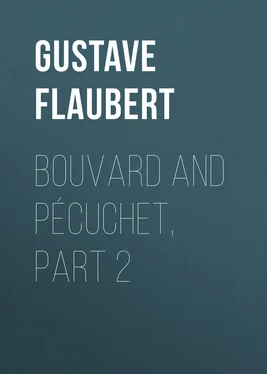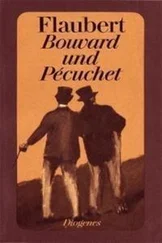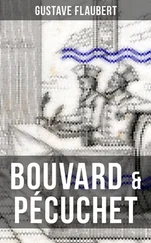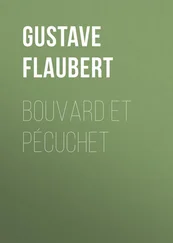Gustave Flaubert - Bouvard and Pécuchet, part 2
Здесь есть возможность читать онлайн «Gustave Flaubert - Bouvard and Pécuchet, part 2» — ознакомительный отрывок электронной книги совершенно бесплатно, а после прочтения отрывка купить полную версию. В некоторых случаях можно слушать аудио, скачать через торрент в формате fb2 и присутствует краткое содержание. Жанр: foreign_antique, foreign_prose, на английском языке. Описание произведения, (предисловие) а так же отзывы посетителей доступны на портале библиотеки ЛибКат.
- Название:Bouvard and Pécuchet, part 2
- Автор:
- Жанр:
- Год:неизвестен
- ISBN:нет данных
- Рейтинг книги:5 / 5. Голосов: 1
-
Избранное:Добавить в избранное
- Отзывы:
-
Ваша оценка:
- 100
- 1
- 2
- 3
- 4
- 5
Bouvard and Pécuchet, part 2: краткое содержание, описание и аннотация
Предлагаем к чтению аннотацию, описание, краткое содержание или предисловие (зависит от того, что написал сам автор книги «Bouvard and Pécuchet, part 2»). Если вы не нашли необходимую информацию о книге — напишите в комментариях, мы постараемся отыскать её.
Bouvard and Pécuchet, part 2 — читать онлайн ознакомительный отрывок
Ниже представлен текст книги, разбитый по страницам. Система сохранения места последней прочитанной страницы, позволяет с удобством читать онлайн бесплатно книгу «Bouvard and Pécuchet, part 2», без необходимости каждый раз заново искать на чём Вы остановились. Поставьте закладку, и сможете в любой момент перейти на страницу, на которой закончили чтение.
Интервал:
Закладка:
What was about to take place was inexplicable – so Bouvard reflected; but reason does not suffice for the comprehension of certain things. Great men have admitted that. Let him do as much as they had done; and so, in a kind of torpor, he contemplated the altar, the censer, the tapers, with his head a little light, for he had eaten nothing, and experienced a singular weakness.
Pécuchet, by meditating on the Passion of Jesus Christ, excited himself to outbursts of love. He would have liked to offer his soul up to Him as well as the souls of others – and the ecstasies, the transports, the illumination of the saints, all beings, the entire universe. Though he prayed with fervour, the different parts of the mass seemed to him a little long.
At length the little boys knelt down on the first step of the altar, forming with their coats a black band, above which rose light or dark heads of hair at unequal elevations. Then the little girls took their places, with their veils falling from beneath their wreaths. From a distance they resembled a row of white clouds at the end of the choir.
Then it was the turn of the great personages.
The first on the gospel-side was Pécuchet; but, too much moved, no doubt, he kept swaying his head right and left. The curé found difficulty in putting the host into his mouth, and as he received it he turned up the whites of his eyes.
Bouvard, on the contrary, opened his jaws so widely, that his tongue hung over his lip like a streamer. On rising he jostled against Madame Bordin. Their eyes met. She smiled; without knowing the reason why, he reddened.
After Madame Bordin, Mademoiselle de Faverges, the countess, their lady companion, and a gentleman who was not known at Chavignolles approached the altar in a body.
The last two were Placquevent and Petit, the schoolmaster, and then, all of a sudden, Gorju made his appearance. He had got rid of the tuft on his chin; and, as he went back to his place, he had his arms crossed over his breast in a very edifying fashion.
The curé harangued the little boys. Let them take care later on in life not to act like Judas, who betrayed his God, but to preserve always their robe of innocence.
Pécuchet was regretting his when there was a sudden moving of the seats: the mothers were impatient to embrace their children.
The parishioners, on their way out, exchanged felicitations. Some shed tears. Madame de Faverges, while waiting for her carriage, turned round towards Bouvard and Pécuchet, and presented her future son-in-law: “Baron de Mahurot, engineer.” The count was sorry not to have the pleasure of their company. He would return the following week. “Pray bear it in mind.”
The carriage having now come up, the ladies of the château departed, and the throng dispersed.
They found a parcel inside their own grounds in the middle of the grass. The postman, as the house had been shut up, had thrown it over the wall. It was the work which Barberou had promised to send, Examination of Christianity , by Louis Hervieu, a former pupil of the Normal School. Pécuchet would have nothing to say to it, and Bouvard had no desire to make himself acquainted with it.
He had been repeatedly told that the sacrament would transform him. For several days he awaited its blossomings in his conscience. He remained the same as ever, and a painful astonishment took possession of him.
What! The Flesh of God mingles with our flesh, and it produces no effect there! The Thought which governs the world does not illuminate our spirits! The Supreme Power abandons us to impotence!
M. Jeufroy, while reassuring him, prescribed for him the catechism of the Abbé Gaume.
On the other hand, Pécuchet’s devotion had become developed. He would have liked to communicate under two species, kept singing psalms as he walked along the corridor, and stopped the people of Chavignolles to argue with, and to convert them. Vaucorbeil laughed in his face; Girbal shrugged his shoulders; and the captain called him “Tartuffe.”
It was now thought that they were going too far.
It is an excellent custom to consider things as so many symbols. If the thunder rumbles, imagine to yourself the Last Judgment; at sight of a cloudless sky, think of the abode of the blessed; say to yourself in your walks that every step brings you nearer to death. Pécuchet observed this method. When he took hold of his clothes, he thought of the carnal envelope in which the Second Person of the Trinity was clad; the ticking of the clock recalled to him the beatings of His heart, and the prick of a pin the nails of the Cross. But in vain did he remain on his knees for hours and multiply his fasts and strain his imagination. He did not succeed in getting detached from self; it was impossible to attain to perfect contemplation.
He had recourse to mystic authors: St. Theresa, John of the Cross, Louis of Granada, Simpoli, and, of the more modern, Monseigneur Chaillot. Instead of the sublimities which he expected, he encountered only platitudes, a very disjointed style, frigid imagery, and many comparisons drawn from lapidaries’ shops.
He learned, however, that there is an active purgation and a passive purgation, an internal vision and an external vision, four kinds of prayers, nine excellencies in love, six degrees in humility, and that the wounding of the soul is not very different from spiritual theft.
Some points embarrassed him.
“Since the flesh is accursed, how is it that we are bound to thank God for the boon of existence?” “What proportion must be observed between the fear indispensable to the salvation and the hope which is no less so?” “Where is the sign of grace?” etc.
M. Jeufroy’s answers were simple.
“Don’t worry yourself. By desiring to sift everything we rush along a perilous slope.”
The Catechism of Perseverance , by Gaume, had disgusted Pécuchet so much that he took up Louis Hervieu’s book. It was a summary of modern exegesis, prohibited by the government. Barberou, as a republican, had bought the book.
It awakened doubts in Bouvard’s mind, and, first of all, on original sin. “If God had created man peccable, He ought not to punish him; and evil is anterior to the Fall, since there were already volcanoes and wild beasts. In short, this dogma upsets my notions of justice.”
“What would you have?” said the curé. “It is one of those truths about which everybody is agreed, without being able to furnish proofs of it; and we ourselves make the crimes of their fathers rebound on the children. Thus morality and law justify this decree of Providence, since we find it in nature.”
Bouvard shook his head. He had also doubts about hell.
“For every punishment should look to the amelioration of the guilty person, which is impossible where the penalty is eternal; and how many are enduring it? Just think! All the ancients, the Jews, the Mussulmans, the idolaters, the heretics, and the children who have died without baptism – those children created by God, and for what end? – for the purpose of being punished for a sin which they did not commit!”
“Such is St. Augustine’s opinion,” added the curé; “and St. Fulgentius involves even the unborn child in damnation. The Church, it is true, has come to no decision on this matter. One remark, however. It is not God, but the sinner who damns himself; and the offence being infinite, since God is infinite, the punishment must be infinite. Is that all, sir?”
“Explain the Trinity to me,” said Bouvard.
“With pleasure. Let us take a comparison: the three sides of a triangle, or rather our soul, which contains being, knowing, and willing; what we call faculty in the case of man is person in God. There is the mystery.”
“But the three sides of the triangle are not each the triangle; these three faculties of the soul do not make three souls, and your persons of the Trinity are three Gods.”
Читать дальшеИнтервал:
Закладка:
Похожие книги на «Bouvard and Pécuchet, part 2»
Представляем Вашему вниманию похожие книги на «Bouvard and Pécuchet, part 2» списком для выбора. Мы отобрали схожую по названию и смыслу литературу в надежде предоставить читателям больше вариантов отыскать новые, интересные, ещё непрочитанные произведения.
Обсуждение, отзывы о книге «Bouvard and Pécuchet, part 2» и просто собственные мнения читателей. Оставьте ваши комментарии, напишите, что Вы думаете о произведении, его смысле или главных героях. Укажите что конкретно понравилось, а что нет, и почему Вы так считаете.












